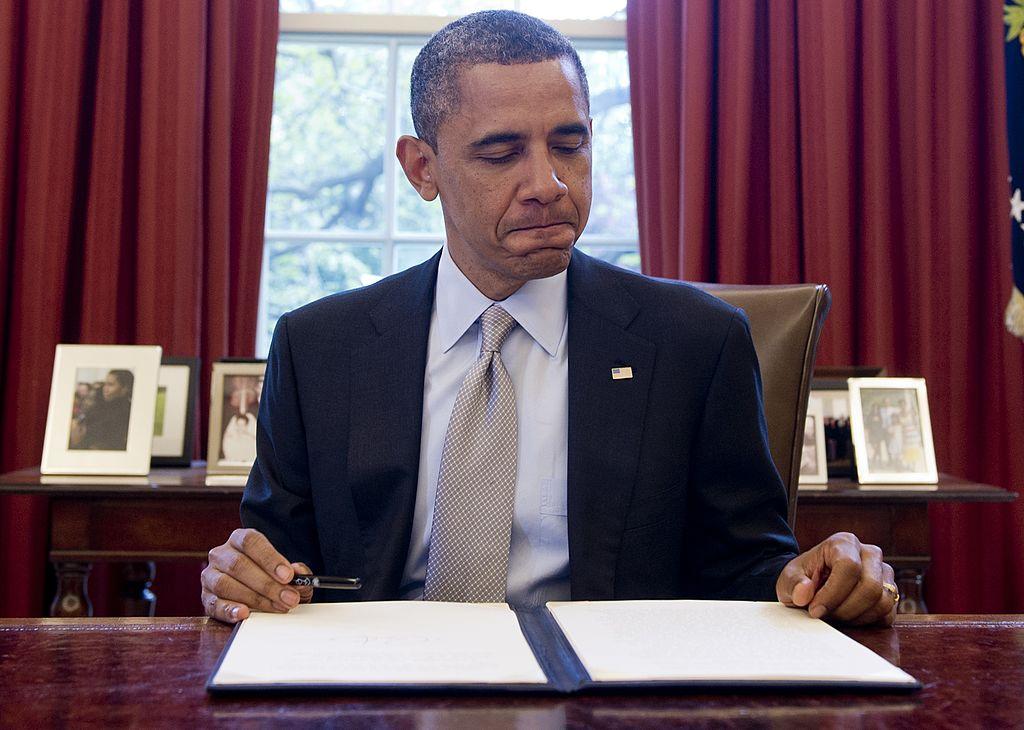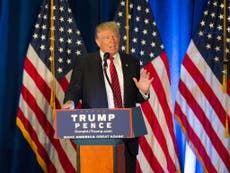Forget the TTIP row, now the American TTP trade deal looks set for collapse
Obama believes passing TTP would be a major win for his administration as he seeks to define his presidential legacy – but both Hillary Clinton and Donald Trump oppose the deal

Just like the debate over TTIP at home, in the US another controversial trade deal is causing political ructions, and will play an important role in deciding the tough decisions that will face the next American president come January.
Senator Bernie Sanders last weekend called for the Democratic Party to abandon efforts to pass the Trans-Pacific Partnership (TPP) trade deal in Congress. His move followed a set-piece economic speech by Hillary Clinton last Thursday in which she re-emphasised her own opposition to TPP, underlining growing concerns across the world over the prospect that – after seven decades of Washington being at the forefront of efforts to liberalise the international economy – a political backlash is killing off support for free trade.
In the face of these troubles, the Obama administration will continue its August blitz this week to boost support within the United States for the 12 country TPP deal.
At least 30 events are planned before the end of the month in a major effort to build popular and congressional assent for the landmark trade and investment deal – the biggest regional free trade agreement in history, and the largest trade deal struck since the 1994 completion of the Uruguay Round, which created the World Trade Organisation.
A reason for the big push, which moves in September to Capitol Hill, is the potential hammer blow to US prestige and leadership if TPP fails, together with the prospect that the Transatlantic Trade and Investment Partnership deal (TTIP) with Europe could follow the same path.
Aside from the opposition to TPP of both Democratic and Republican presidential nominees, US House Speaker Paul Ryan – who is a TPP advocate – admitted last week that “we don’t have the votes” in Congress for the bill to be brought up before the end of Obama’s presidency, even in the “lame duck” session after November’s elections.
TPP is strategically important for the US administration, and not just because the 12 countries – Australia, Brunei, Canada, Chile, Japan, Malaysia, Mexico, New Zealand, Peru, Singapore, Vietnam and the US – encompass around 40 per cent of world GDP. It also has important trade rules-setting functions: Obama has asserted that the TTP treaty would enable Washington, rather than Beijing, to create the foundation stone for “21st century trade rules”, including trading standards, investment, data flows and intellectual property.
As Obama has noted, “when more than 95 per cent of our potential customers live outside our borders, we can’t let countries like China write the rules of the global economy. We should write those rules, opening new markets to American products while setting high standards for protecting workers and preserving our environment”.
The precise economic impact of the proposed deal is hard to forecast with precision. However, the Peterson Institute for International Economics has indicated that it will provide an approximately $300bn (£230bn) boost to the TPP countries (which might expand, over time, to include other countries such as China) by 2025.
Yet TPP is a very controversial agreement, with many domestic lobby groups opposing it – including labour organisations in the US itself, which are concerned about the impact upon wages and jobs for blue-collar workers in the country of the free trade deal. Congressional lawmakers, including the Republican chair of the Senate finance committee Orrin Hatch, have also expressed concerns about the nature of TPP deal, which would phase out a swathe of import tariffs and other barriers to trade.
While much of the congressional discontent with TPP centres on the economic impact of TPP, it is being promoted by Obama as an opportunity for the US to become even more influential in the strategically-important Asia-Pacific region.
The treaty will set more trade rules than any other previous example, including limiting subsidies to state-owned companies which could become very important were China eventually to join the agreement. It would also help lock-in US international policy toward the Asia-Pacific region and other strategic high-growth markets.
So Obama believes passing TTP would be a major win for his administration as he seeks to define his presidential legacy with less than six months left before his tenure in the White House comes to an end.
The White House recognises that passage of TPP will serve the goal of reassuring Asia-Pacific allies about the US’s enduring security and political commitments to them. And, in turn, the new free trade agreement will send a clear message to others – especially China – about US intent to continue to place greater strategic emphasis on the region, despite its involvement in other regions of the world including the Middle East.
Uncertainty over the fate of the TPP treaty is growing. A breakthrough remains possible that will help Obama define his White House legacy and also shape the contours of the 21st century world economy. But the prospects are increasing of the deal failing to secure congressional ratification, which will damage US prestige and leadership in Asia-Pacific and will have wider ramifications for trade and foreign policy for the next presidency.
Andrew Hammond is an associate at LSE IDEAS, the Centre for International Affairs, Diplomacy and Strategy at the London School of Economics





Join our commenting forum
Join thought-provoking conversations, follow other Independent readers and see their replies